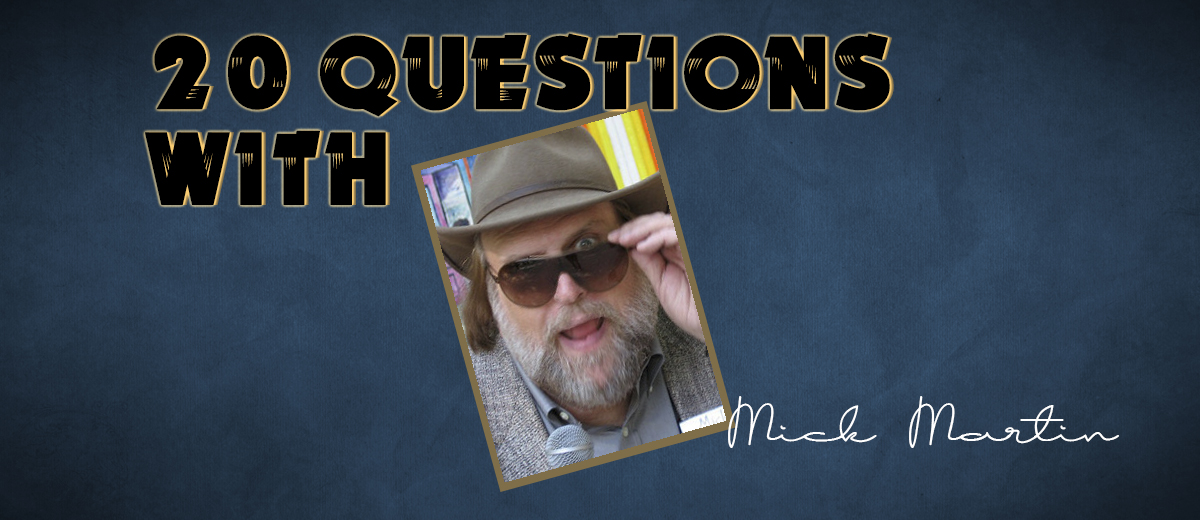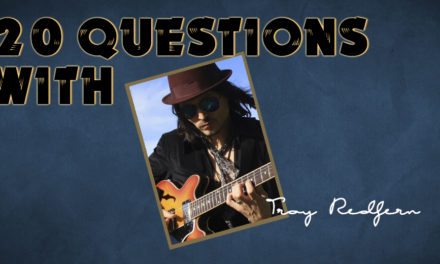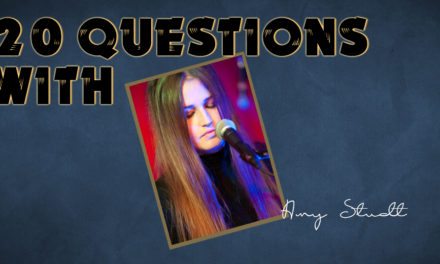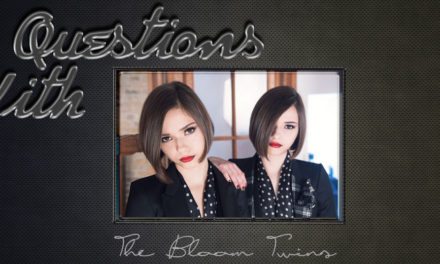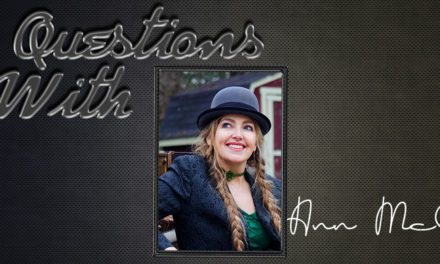Mick Martin – 20 Questions
We asked the US blues stalwart whose distinctive harp and vocal style continues to earn attention and fans a set of (customised) questions which he kindly agreed to tackle.
- Name a favourite Paul Butterfield track and why you like it
It would have to be his amazing version of “Everything’s Gonna Be Alright’ on the “Butterfield Blues Band Live” release. In my opinion, it is every bit as good as Sonny Boy Williamson II’s “Sonny Boy’s Harmonica Boogie” from the “American Folk Blues Festival” release (which is also included on the “Sonny Boy Williamson in Europe” CD I produced for Evidence Music). In both cases, these brilliant musicians show why they are considered masters of the harp. Although Butterfield plays two sections of the song by himself, there is not one extra note in his solos. He serves the piece at all times, using silence as effectively as music. Alternately explosive and plaintive, it is a workout on the instrument that can be listened to over and over without losing any of its power.
- Can you recall the first time you noticed the harmonica on a recording?
Absolutely. When I was about 8 years old, I inherited several albums of 78s. Included was a Larry Adler collection that featured his 1935 recording of George Gershin’s “Rhapsody in Blue.” He was 21. When the celebrated composer heard the young chromatic player performing the song, he remarked, “It sounds like I wrote the damn thing for him.” The common impression, especially in the 1930s, was that you could not bend the reeds on a chromatic, but Adler did and to great effect. I played that record until it had no more grooves on it! His last version of the piece was released in 1994 when he was 80 years old on a collection of Gershin compositions entitled “The Glory of Gershwin” produced by George Martin. It is magnificent. As an aside, during my first trip to England in 1980, I somehow ended up at Paul Jones’ home in Wimbledon. I especially wanted to ask him about the lost slow blues track by Eric Clapton and the Powerhouse from “What’s Shakin’,” an anthology LP that also featured the Paul Butterfield Blues Band and Al Kooper. The subject somehow switched to Adler (as I have always respected Paul’s expertise on the harp) and he told me he had gone to the expatriate (Adler was driven out of America by the communist witch hunt) in search of lessons. When the older man saw the harmonica Jones had brought, he said, “You don’t mean you want me to teach you how to play THAT? I haven’t the slightest clue!” Adler started playing professionally at 9 years old and, as far as I know, never took a lesson in his life.
- What was your favourite TV series ever? A side-issue, but did it have memorable music?
It was called “Peter Gunn” and had a great title song by Henry Mancini. I used its hypnotic bass line in a song Tim Barnes and I wrote called “There’s the Door.” Foolishly, I was at the Famous Monday Night Blues Christmas Party in 2005 and asked the bass player in Never the Bride to play it while I sung over it. It never occurred to me that it wasn’t as famous in England!!
- What harmonicas do you favour for stage shows and why is this?
I use Hohner’s Big River Harps because I prefer plastic separators over wood (no swelling from saliva). I like the challenge of playing in all keys, including Lee Oskar’s natural minors. When I play with Harvey Mandel, we do “Christo Redentor” in Cm and listeners are always making kind comments. When we played the 40th anniversary of Woodstock, West-Fest, in Golden Gate Park, bass player Michael Warren asked if it was me answering Harvey with the harp. When I said yes, he put his arm across my shoulder and hugged me.
- The chromatic harmonica – do you use one and if so when is that selected?
In 1992. I discovered that a Hohner Chromonica 270 in the key of A could be played like a diatonic in the key of C with the slider pushed in. Arthur “Fresh Air” Moore, a friend of Paul deLay’s in Portland (they recorded “Beggin’ Megan” together for “Paulzilla”), wrote a review of our first release, “Good Time,” in 1993. It appeared in the American Harmonica Newsletter and he raved about my chromatic solo on “Wee Wee Hours.” Apparently, he had tried to learn it on a standard C chromatic. I didn’t have the heart to tell him that I had cheated.
- Name a track (artist/title/source album) that you love and want people to hear
Whoa, now that is a tough one. As a disc jockey here in the U.S., I am fortunate to have an audience that tolerates what I call a “left turn” on “Mick Martin’s Blues Party.” This covers anything that isn’t even remotely blues. My all-time favorite is Dennis Wilson’s “Forever.” Of late, I fell in love with George Ezra’s “Blame It on Me.” The phones rang off the hook on that one (and every other form of media).
- Tell us your favourite closing track on an album (artist /album title) and why you find it effective or appropriate
“Freedom” by the Sons of Champlin on their first album, “Loosen Up Naturally.” I recently interviewed Bill Champlin about the evolution of the song, which begins with a tribute to Lou Rawls on their “Live” CD with Bill doing “Tobacco Road.” Anyway, Bill said, “All the San Francisco bands were closing their sets with Bobby Bland’s ‘Turn on Your Lovelight’ and I had been putting different songs together, so we used that (gospel) groove to end ‘Freedom.’ It just worked.” The album begins with “1982-A,” a rousing opener if there ever was one. You wonder, as the songs keep getting better and better, how they could top themselves, then, to use an American baseball expression, they knock it out of the park with “Freedom.”
- Which album by any artist deserves a much better cover or artwork?
The American version of Jimi Hendrix’s “Are You Experienced.” Why they didn’t use the superb, Dracula-esque British one I’ll never know.
- Give us your thoughts on Little Walter & / for Sonny Boy Williamson (Rice Miller)
I consider “Help Me” to be the greatest blues song of all time and Sonny Boy’s playing to be the ultimate in perfection. So many American harp players tried to get that Little Walter thing that I avoided it at all costs. That said, I love them both, but Rice Miller touches me deep down in my soul.
- Which female artist (living) would you like to sing with on stage or perhaps on a recording?
Angela Strehli, whose phrasing of blues songs is impeccable, or Tracy Nelson, who soars with the angels.
- Is there a kind of music you don’t like listening to? (I can’t get in to Death Metal!)
It would be easier to pick what I do like: blues and melodies. It’s the old Rolling Stones and the Beatles mentality. When AC/DC and Black Sabbath came along, I tuned out for the most part. I also dislike “perfect” music like Steely Dan’s “Aja,” Fleetwood Mac’s “Rumours,” things by Toto — any song recorded with a click track. Music should breathe — speed up and slow down. It seems more human to me that way.
- Have you a favourite cut by the Anglo/American band War?
That’s a tough one. I love Lee Oskar’s playing. Probably “City, Country, City” from “Platinum Jazz.”
- Tell us about your Saturday radio and internet show
I have a conceit that is probably specific to musicians. I do not play the same songs each week. FM radio is rife over here with “the music of your life,” a.k.a. “classic rock.” If it was a hit, I’ll only play it if requested and, even then, in a different version. When we lost B.B. King, a listener wanted to hear “When Love Comes to Town,” so, instead of playing the version by U2, I chose the one from “B.B. King Live at the Apollo.” Every show is different, yet there is a theme to each one that I may not notice until later. I feel there is a “voice” in my head that tells me what to do in building a show or choosing what to play when on stage. My employers do not like my no-repeat policy (which is not set in stone), but they like the ratings. People who enjoy the kind of music I play, which is primarily blues-based, know that if they miss a show, they might miss something they would have really liked. At least, that was true for a number of years; we now have many, many shows available on “Listen on Demand.”
- On harp you have to ‘play the room’ as they are all different – any tips to get ‘your’ sound?
Every harp player has his own sound as a result of the instrument he plays – and I’m not talking about the harmonica. It’s your mouth, tongue, throat, lips, etc. I’m a lipper not a tonguer. I like a sweet sound; you can blame that on Sonny Boy, Butterfield, Oskar. Adler and deLay.
- What particular recording makes you want to dance? And which to relax?
Cafe R&B’s version of James Brown’s “There Was a Time” gets me moving every time! The late Stephen Klong’s drumming is as infectious as all get out. For relaxing, I’d have to pick The Beatles’ “Rubber Soul” or Simon & Garfunkel’s “Bookends.”
- Norton Buffalo – much missed (by me) – any thoughts?
One of THE most generous and kind men it has ever been my privilege to know. He could play all of us under the table, but was never boastful. I called him after doing one of my tributes to him when we all knew he was dying and he picked up the phone and said, “Mick? Is that you? I saw the area code and hoped it was you!” We laughed and chatted. I told him I’d been playing so many of his recordings I was running out of different things to play and he said, “Well, you’re going to have to come to my house in the hills because I have some recordings few people have ever heard.” He was gone four days later.
- Which Motown classic could have used a harmonica part or break?
I’m getting a big kick out of playing Jr. Walker’s “I’m a Road Runner” on my F and Bb harps, something I learned from Dave Walker’s track on Fleetwood Mac’s “Penguin.” When I played with organist Jimmy Smith, Herman Riley was on sax. He was a friend, defender and an inspiration. He played on most of Motown’s L.A. recordings. But I digress. I’d have to pick “My Girl.”
- Have you a favourite record label ? I loved Elektra, for its adventure and class
Probably Verve because of Jimmy Smith and Blue Note for so many great jazz cats. Oh, and Prestige for Brother Jack McDuff and early George Benson – I love that greasy organ stuff!
- Which album of yours hits the spot for you, still? And why?
Oh man, you know how to hit a guy right between the eyes. I hate them all equally. No, just kidding. I like “Tip of the Hat” because it’s a tribute to all my favorite British bands, “Blues Plate Special,” our first studio recording, and “In One Ear” because it was heavily influenced by A3 and because of drummer Joey Murazzo, who died of a heart attack on stage during our second song when we were opening for the Sons of Champlin. But warts and all? Hands down, “Live at Rainbow Orchards” with Harvey Mandel.
- Nominate a great harp / guitar pairing – and why ? (Jagger and Richard have their moments!)
No fair. Butterfield and Bloomfield, the best of both worlds, Junior Wells and Buddy Guy, two giants on stage together, Sonny Boy II and Robert Jr. Lockwood, Little Walter and Luther Tucker – unless you mean one guy, and that would be Peter Green. The song “Fleetwood Mac” from “The Original Fleetwood Mac” is the perfect example. I rest my case.
Pete Sargeant
Mick Martin’s Blues Party is on Capital Public Radio every Saturday night. For details and to listen to the show visit www.capradio.org/programs/mick-martins-blues-party
Footnote – Stop press! Mick has asked us to mention Matt Schofield and his track ‘Ear To the Ground’ as a favourite of the last ten years.

